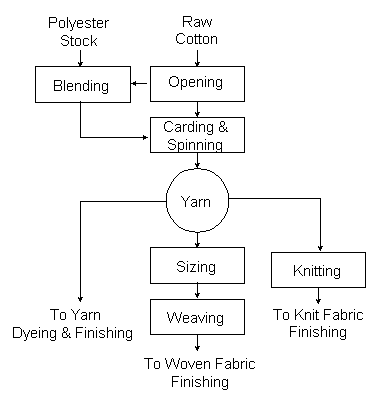This category of the textile mill includes yarn manufacturing, yarn texturing, unfinished fabric manufacturing, fabric coating, fabric laminating, tire cord and fabric dipping, carpet tufting and carpet backing. The majority of dry processing mills are usually greige mills. Weaving textile yarns into a fabric requires application of size to the warp yarns, to resist the abrasive effects of the filling yarns as they are positioned by the shuttle action of the loom. Greige mills apply the size and complete the weaving. Many greige mills operate as completely independent facilities. Figure 4 shows operations generally performed at this type of greige mill.
Mills within the dry processing category typically carry out dry-type operations, however, some waste is produced by spillage and vessels of floor cleaning. Some textile greige mills produce a wide variety of woven goods, each requiring a specially formulated size. In mills of this type, the size boxes may be dumped and cleaned several times a day depending upon the production schedule. In unusual cases such as this, operations may produce a large effluent volume.
